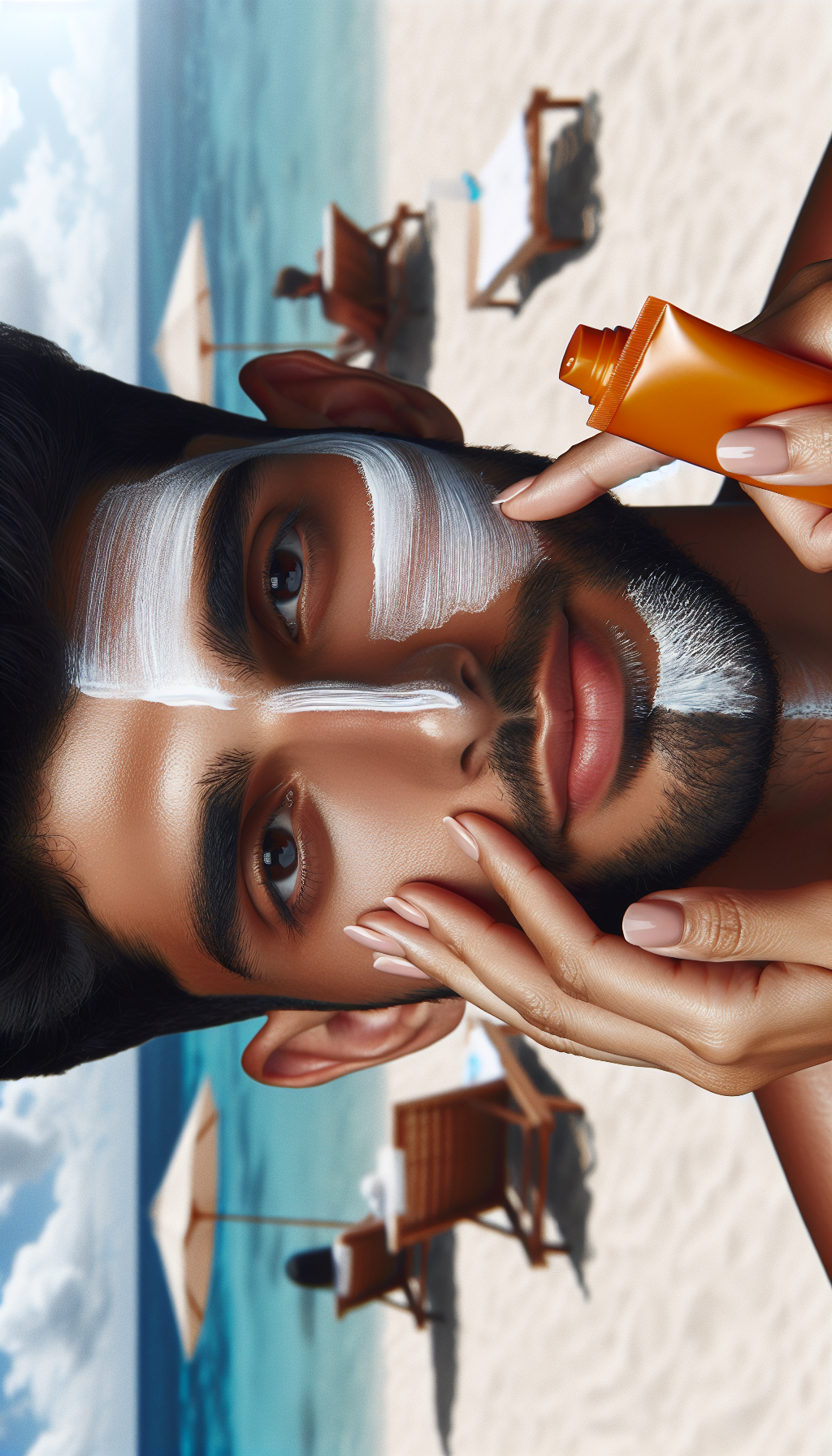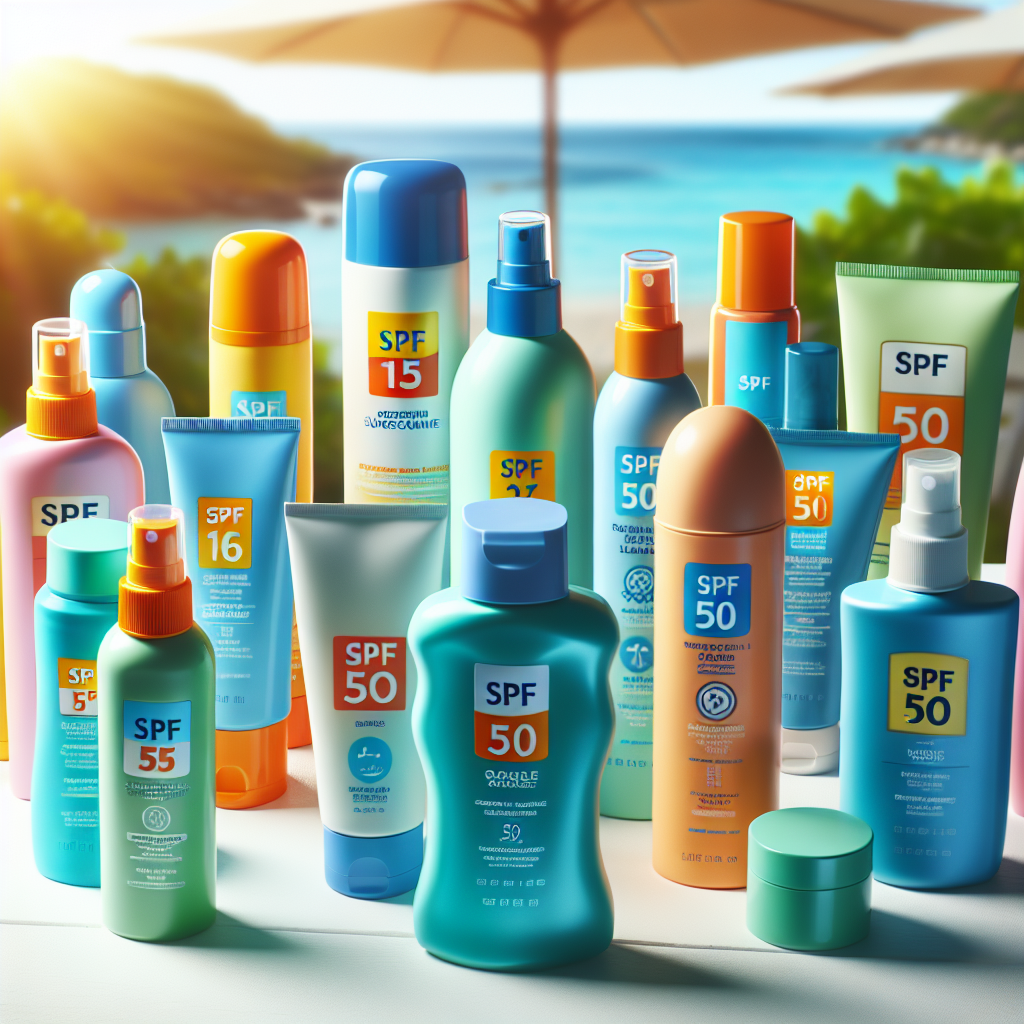Sun protection is a critical aspect of skin care, regardless of the time of year or weather conditions. The importance of sunscreen for all skin types cannot be overstated, as it plays a pivotal role in protecting the skin from the harmful effects of ultraviolet (UV) radiation. This article delves into why sunscreen should be a non-negotiable part of your daily routine and how to choose the right product for your skin type.
Understanding UV Radiation and Skin Damage
UV radiation from the sun is categorized into two main types: UVA and UVB rays. UVA rays are primarily responsible for aging the skin, leading to fine lines, wrinkles, and sunspots. They can penetrate deep into the skin and are present throughout the day, even on cloudy days or through glass windows. UVB rays, on the other hand, are the main cause of sunburn and play a significant role in developing skin cancer.
Both types of UV radiation can cause skin health issues, making the application of sunscreen an essential defense mechanism. Without protection, exposure to UV rays can lead to the breakdown of collagen and elastin fibers, resulting in premature aging and the potential for severe skin conditions.
The Broad-Spectrum Solution
When selecting sunscreen, opt for a broad-spectrum product. Broad-spectrum sunscreens are formulated to shield the skin from both UVA and UVB rays. The Sun Protection Factor (SPF) indicates the level of protection from UVB rays, but it is the broad-spectrum label that ensures comprehensive coverage.
Sunscreen for Different Skin Types
Every skin type needs sunscreen, but the formulation might differ. Here’s a brief guide on what to consider based on your skin type:
For Oily Skin
If you have oily skin, look for sunscreens that are oil-free and non-comedogenic, which means they won’t clog pores. Gel-based sunscreens or those with a matte finish can be ideal. For more insights, read about Tips for Managing Oily Skin and Preventing Acne.
For Dry Skin
Those with dry skin should seek out sunscreens with hydrating ingredients like hyaluronic acid or glycerin. Cream-based sunscreens can also provide additional moisture.
For Sensitive Skin
Sensitive skin types need to be cautious about the ingredients in their sunscreen. Mineral sunscreens containing zinc oxide or titanium dioxide are less likely to cause irritation. For further guidance, the article on Choosing Sunscreen for Sensitive Skin Types can be helpful.
For Darker Skin Tones
While darker skin tones have some natural protection against UV radiation, sunscreen is still necessary to prevent hyperpigmentation and skin cancer. Sheer or clear formulations can avoid leaving a white cast on the skin.
The Role of Sunscreen in Preventing Skin Cancer
Regular use of sunscreen can significantly reduce the risk of developing various forms of skin cancer, including melanoma, which is the most dangerous type. It is essential to apply sunscreen correctly and reapply it every two hours, or more frequently if swimming or sweating, to maintain its effectiveness. For more information on skin cancer prevention, consider reading Preventive Measures for Skin Cancer Beyond Sunscreen.
Application Tips for Maximum Protection
To get the most out of your sunscreen, follow these application tips:
- Apply sunscreen to all exposed areas of the skin, including ears, neck, and hands.
- Use a shot glass amount (approximately 1 ounce) to cover the entire body.
- Apply sunscreen 15 minutes before going outdoors to allow it to bind to the skin.
- Reapply every two hours, or more often if swimming or sweating.
Incorporating Sunscreen into Your Daily Routine
Incorporating sunscreen into your daily skin care routine is a proactive step towards long-term skin health. Use it as the final step in your morning regimen, after moisturizers and before makeup. If you use anti-aging skin care products, sunscreen will enhance their effectiveness by protecting the skin from further UV damage.
External Resources for Further Reading
While understanding the importance of sunscreen is the first step, delving deeper into the subject can help tailor your sun protection strategies better. Here are a few niche resources that provide in-depth information on sunscreen formulations and their efficacy:
- Skin Cancer Foundation’s Guide to Sunscreens
- American Academy of Dermatology’s Sunscreen FAQ
- Environmental Working Group’s Sunscreen Database
By consulting these resources, you can make informed decisions about the best sunscreen for your skin type and lifestyle, ensuring that you’re adequately protected every day.
Final Thoughts
Sunscreen is a crucial element of skin care that transcends aesthetic concerns, providing a shield against the health risks associated with UV exposure. By choosing the right sunscreen for your skin type and making its application a daily habit, you’re taking a significant step towards preserving your skin’s health and vitality.
Remember to consult with a dermatologist if you have specific concerns or conditions that may affect your choice of sunscreen. With the right knowledge and products, you can enjoy the sun safely and keep your skin healthy for years to come.



